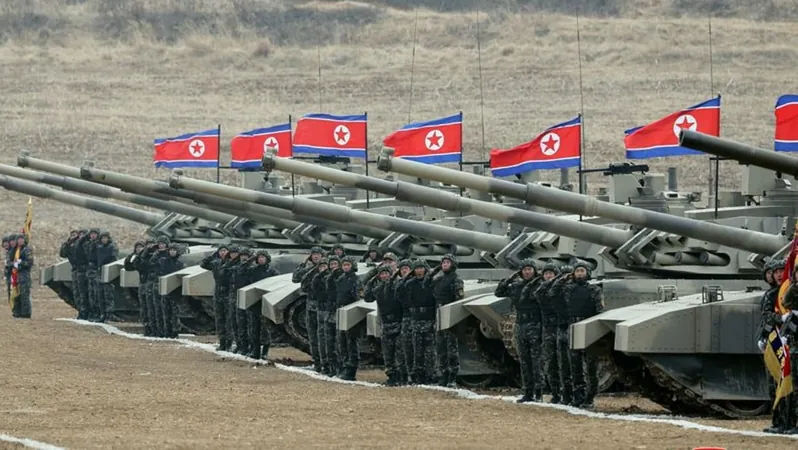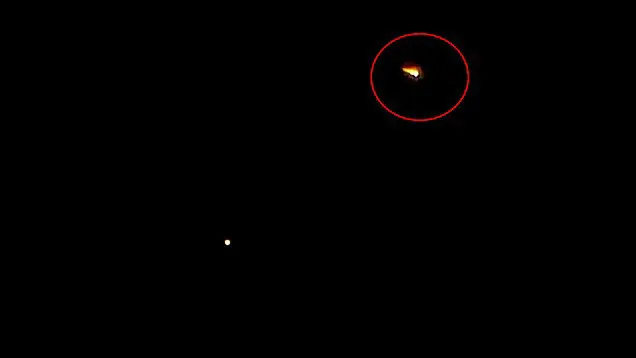
North Korea’s Suicide Soldiers: A New Dimension in the Ukraine-Russia Conflict
2025-01-14
Author: Wei
SEOUL: Tensions escalated this week as Ukrainian special forces encountered a disturbing phenomenon in Russia's snowy western Kursk region: North Korean soldiers willing to resort to suicide tactics to evade capture. Following a recent battle, Ukrainian troops reported finding the bodies of over a dozen North Korean soldiers, one of whom detonated a grenade while still alive, opting for self-destruction rather than surrender, according to accounts shared by Ukraine’s Special Operations Forces.
This alarming incident highlights a trend among North Korean troops engaged in Russia's ongoing conflict with Ukraine, with intelligence suggesting that some 11,000 North Korean soldiers have been deployed to support Moscow's war efforts. Reports indicate that over 3,000 have already been killed or injured in battle, raising serious concerns about their preparedness and effectiveness in modern warfare.
Former North Korean soldier Kim—who defected to South Korea in 2022—provided profound insight into this extreme mindset. He explained, "These soldiers have been indoctrinated to believe their lives are expendable in service to Kim Jong Un." His comments underscore the deep-seated brainwashing that North Korean troops undergo, making them willing to sacrifice themselves for their regime.
Despite initial denials by Moscow and Pyongyang regarding troop deployments, Russian President Vladimir Putin tacitly acknowledged the presence of North Korean soldiers when he refrained from denying their involvement in October. A North Korean official later claimed that their presence in Russia is legitimate and legal.
In a further twist, Ukraine recently released videos of captured North Korean soldiers, revealing a mix of sentiments. One expressed a desire to remain in Ukraine, while the other yearned to return home, as stated by Ukrainian President Volodymyr Zelenskyy.
The deployment of North Korean forces to Russia marks a significant moment for Pyongyang, as this is its first major military involvement since the Korean War of 1950-53. Past involvements in Vietnam and Syria were much smaller in scale. However, the U.S. has cautioned that the experiences gained from this conflict could enhance North Korea’s military capabilities against its neighbors.
While the North Korean regime propagates the narrative of having one of the world's strongest armies, recent assessments indicate that these soldiers are ill-equipped for the dynamics of modern warfare, including the threat posed by drones. Observations from South Korean intelligence suggest that many of these soldiers are being employed as "cannon fodder" by Russia, exposing them to unnecessary risks without adequate support.
Disturbingly, evidence has emerged that indicates North Korean soldiers have been instructed to commit suicide if capture seems imminent. South Korean lawmaker Lee Seong-kweun revealed that one soldier attempted self-detonation rather than face capture, an act seen as demonstrating loyalty to Kim Jong Un.
This troubling culture extends beyond individual actions; suicides among North Korean soldiers are perceived not just as displays of loyalty but as measures to protect their families back home from potential retribution. The stakes are perilously high, with becoming a prisoner of war viewed as an irreversible act of treachery among North Korean troops.
As the situation continues to unfold, President Zelenskyy expressed his willingness to return any captured North Korean soldiers to Kim Jong Un in exchange for Ukrainian captives held by Russia. However, many within North Korea would consider the prospect of returning home a fate worse than death, a chilling testament to the psychological grip that the regime holds over its soldiers.
The implications of North Korea’s involvement in the Ukraine conflict are profound, not only for the soldiers themselves but for the broader geopolitical landscape. As this brutal war continues to evolve, the world watches with bated breath to see how these dynamics will play out.




 Brasil (PT)
Brasil (PT)
 Canada (EN)
Canada (EN)
 Chile (ES)
Chile (ES)
 Česko (CS)
Česko (CS)
 대한민국 (KO)
대한민국 (KO)
 España (ES)
España (ES)
 France (FR)
France (FR)
 Hong Kong (EN)
Hong Kong (EN)
 Italia (IT)
Italia (IT)
 日本 (JA)
日本 (JA)
 Magyarország (HU)
Magyarország (HU)
 Norge (NO)
Norge (NO)
 Polska (PL)
Polska (PL)
 Schweiz (DE)
Schweiz (DE)
 Singapore (EN)
Singapore (EN)
 Sverige (SV)
Sverige (SV)
 Suomi (FI)
Suomi (FI)
 Türkiye (TR)
Türkiye (TR)
 الإمارات العربية المتحدة (AR)
الإمارات العربية المتحدة (AR)